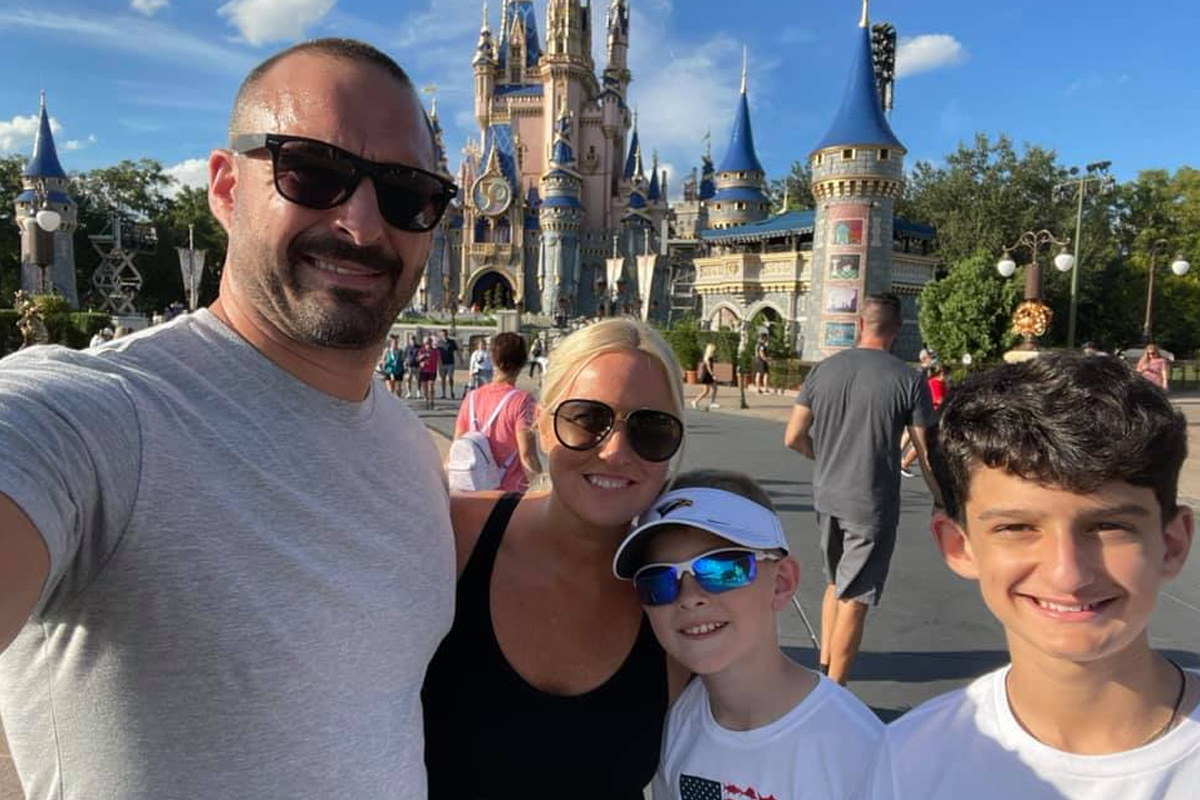For John Wetmore, a self-made millionaire, balancing a life of luxury with old-school values is no easy feat. Wetmore’s journey from teenage dad relying on food stamps to building an eight-figure net worth taught him the value of hustle, and now he’s working to make sure his kids—who grew up with everything he didn’t have—know it too. As he explained to Business Insider, “I want my kids to experience the struggles I faced, even being broke, so they can appreciate the satisfaction of earning their own success.”
From Teenage Dad to Financially Struggling Young Adult
Wetmore’s financial journey was a far cry from where he stands today. At 16, he faced the responsibilities of parenthood, indirectly supporting his high school girlfriend as she gave birth to their child. Balancing school and a part-time job at Little Caesars, Wetmore didn’t have time to think about how different his life was from others. “I’d been raised to shop with food stamps and didn’t think twice about it,” he shared with Business Insider.
In his early 20s, Wetmore worked warehouse shifts and managed night classes to earn his college degree. Despite his efforts, stability felt elusive—until his uncle introduced him to the mortgage business in 2006. The chance to earn $2,000 per sale was life-changing for Wetmore, whose annual salary was just $28,000. He left accounting for sales, but when the 2008 financial crash hit, his “rich life” came crashing down. “My car was repossessed, I lost two homes, and I had to file for bankruptcy,” he says, adding that it taught him a critical lesson about real ownership: “If you’re in debt, you don’t really own anything.”
Finding Financial Success—and the Challenge of Passing It Down
After going back to accounting and later pivoting to the insurance industry, Wetmore started seeing serious financial success. By 2015, he hit his first six-figure year. Inspired by his high-earning colleagues, he set his sights even higher and by 2017, reached his million-a-year goal. Since 2019, his net worth has been in the eight figures, and he’s held onto a million-dollar balance in his account.
This financial contrast shaped his kids’ lives in unexpected ways. His two eldest children, now 30 and 25, remember the tough years, while his middle children, 17 and 18, have seen both the struggles and the comforts of wealth. His youngest, 13, has only known a life of affluence.
Walking the Line Between Support and Spoiling
Raising kids in a life of privilege is complicated, Wetmore admits. Though he’s more than capable of covering their expenses, he’s determined they understand the value of earning. He supports their basics—housing, car, college tuition if they choose—but that’s it. He’s a “Chevy Trailblazer parent” when it comes to their cars, while he drives a custom GMC pickup, Cadillac, Mercedes, and even a Bentley. “I’m not buying luxury cars for my kids because they haven’t earned them,” he says with a laugh.
Wetmore is all about setting boundaries, even if he can afford to indulge. Recently, his youngest son asked for a $22,000 trip to the World Series. “I told him, ‘I love you, but there’s no way I’m spending that on a baseball game,'” Wetmore recalls. When his son suggested a golf cart for their long driveway, Wetmore didn’t hesitate to say no. “He’s perfectly capable of walking,” he says, believing these small denials help his son understand that money isn’t infinite.
Starting Financial Lessons Young
Experts argue that Wetmore’s approach—teaching kids about money early on—might just be on point. Financial expert Susan Hirshman told CNBC that financial responsibility is “essential for success” because money habits impact everything from marriage to buying a home. She encourages starting money conversations early to avoid future credit and debt issues.
As Hirshman explains, six is actually an ideal age to introduce kids to money basics. At this age, kids can understand basic financial consequences like, “If it’s gone, it’s gone,” as Acorns’ Seth Wunder told CNBC. Wunder and Hirshman suggest that even younger children, as early as three to five, can start learning by making simple choices about spending and saving.
For older kids, UBS Global Wealth’s Eric Landolt recommends going deeper. Children between ages eight and 12 can start learning about saving versus spending, while teens from 12 to 15 can practice managing small budgets. By the time they’re 16 to 18, they can start exploring how banks and credit work—knowledge that sets them up for adulthood.
Keeping it Real: Balancing Wealth with Reality
Wetmore is set on keeping his kids grounded. His will is set up to provide modest amounts over time rather than a huge inheritance. “If I died tomorrow, they’d get a little bit every year, but they’d still need to work,” he says. Wetmore wants them to learn that “feeling you’ve earned something is way more fulfilling than just being handed it.”
In a world where money and privilege can easily dilute a sense of value, Wetmore’s goal is simple: ensure his kids know what it means to work for what they want. “I want my kids to do the hard jobs I did, maybe even experience being broke, so they can really understand what it means to succeed,” he says, hoping these lessons will shape them into financially responsible adults.







